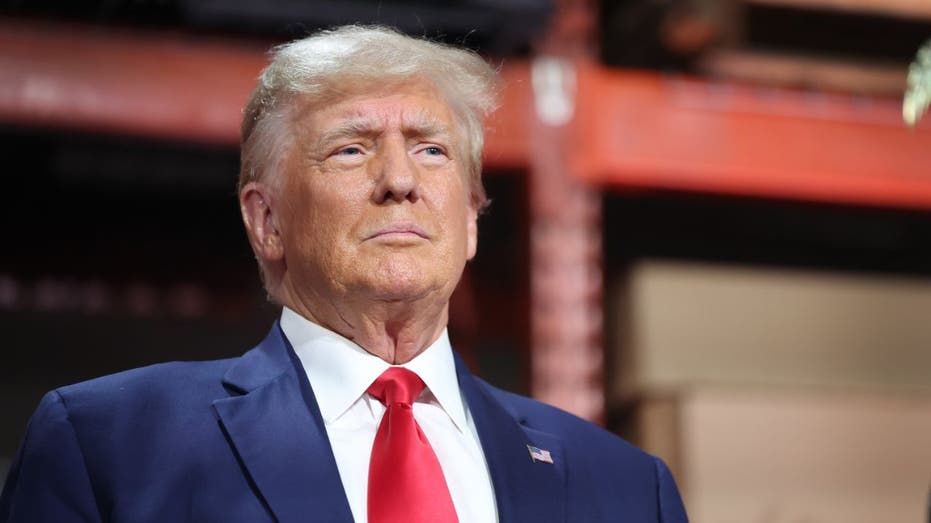Sen. Cruz reintroduces bill to exempt tips from federal income taxes
Trump promised to end taxes on tips during the presidential campaign
No tax on tips is a net positive: Carl Sobocinski
Table 301 Restaurant Group president and owner Carl Sobocinski discusses Trump's 'no tax on tips' plan on 'Cavuto: Coast to Coast.'
One of President-elect Trump's most popular election promises was to eliminate taxes on tips for working Americans.
Now, Congress is helping him deliver on that promise, FOX Business has learned.
On Thursday, Sen. Ted Cruz, R-Texas, reintroduced the No Tax on Tips Act, a bipartisan bill he first pushed last year that aims to exempt tips made by service workers from federal income taxation. The text of the revamped bill was obtained exclusively by FOX Business.
If passed and signed into law, the bill would amend the Internal Revenue Code to allow Americans working in the food and beverage and beauty service industries to claim a 100% deduction for cash and non-cash tips on wages up to $25,000. Employees earning above $150,000 would not qualify for the tip tax exemption.
It would also fulfill part of a broader campaign pledge by Trump to expand tax cuts for middle-class Americans and small businesses amid Biden-era inflation.
"American workers in many industries rely on tipped wages to make ends meet," Cruz said in an exclusive statement to FOX Business. "Today, I’m introducing my bipartisan No Tax on Tips Act — legislation I authored to fulfill President Trump’s promise to end the wrongful practice of taxing voluntary tips."
TRUP TAX CUTS NEED TO HAPPEN IMMEDIATELY: ART LAFFER

Former President Trump speaks to guests during a campaign stop at Drake Enterprises, an automotive parts manufacturer in Clinton Township, Michigan, on Sept. 27, 2023. (Scott Olson/Getty Images / Getty Images)
The legislation is not without its critics. The U.S. budget deficit under President Biden is now at nearly $2 trillion — historic levels except for the time the U.S. government shut down businesses during COVID and handed out free money to make up the difference. The tax cuts, critics say, could add to the deficit and pressure on the bond market that has recently sold off, resulting in higher interest rates amid deficit fears.
Some have raised concerns about the practicality of foregoing taxes on tips as tipped workers often earn below the federal income tax threshold and may not even benefit from such a tax cut.
Cruz introduced the original legislation in June of last year following one of Trump's campaign rallies in which he floated the idea of getting rid of taxes on tips to woo service workers who represent roughly 40% of the U.S. workforce. Given that Republicans were in the minority last Congress, Cruz's bill, which was co-sponsored by Republicans only, did not get voted on.
This time, the bill has bipartisan support with Sens. Jacky Rosen, D-Nev., and Catherine Cortez Masto, D-Nev., signing on, as well as Steve Daines, R-Mont., and Pete Ricketts, R-Neb. A companion bill has also been introduced in the lower chamber by Rep. Vern Buchanan, R-Fla.
U.S. ECONOMY TO LOSE NEARLY 6 MILLION JOBS IF CONGRESS LETS TAX CUTS EXPIRE: STUDY

Proponents of the No Tax on Tips Act believe the costs associated with it will be insignificant compared to the savings for working-class people. (iStock / iStock)
Cruz told FOX Business he’s confident the revamped legislation will pass into law quickly, given the Republican Party's control over the House and the Senate and its eagerness to address the economic needs of working Americans impacted by inflation.
Proponents of the No Tax on Tips Act believe the costs associated with it will be insignificant compared to the savings for working-class people.
"I’ve long believed the GOP should be the party of bartenders, of waiters and waitresses, and this bill is an important step to ensure we are addressing the economic needs of working Americans," he said. "This pro-worker bill will deliver relief to families facing rising costs caused by the Biden administration’s inflationary policies."
The bill has already received endorsements from industry groups including the National Restaurant Association, the Professional Beauty Association and the International Franchise Association, who say the move has the potential to benefit restaurant workers and small businesses as well as aid in workforce recruitment.





















